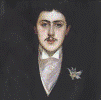Modern Languages and Literatures, Department of

French Language and Literature Papers
Document Type
Article
Date of this Version
5-1980
Citation
Nottingham French Studies 19:1 (May 1980), pp. 22–32
doi: 10.3366/nfs.1980.002
Abstract
Near the beginning and end of his Lettres philosophiques (1734), his first major text promoting the principles of enlightenment, Voltaire gave examples of two very different kinds of eloquence. In the third letter on the Quakers, he pictured George Fox converting his jailers with his inspired preaching. In the last letter, he praised the eloquence of Pascal before he attempted a refutation of the Pensées, calling Pascal’s projected apology for Christianity “un livre plein de paralogismes éloquents et de faussetés admirablement déduites.” Each is representative of a brand of eloquence Voltaire found objectionable. The first kind, appealing chiefly to the lower classes, thrives on enthusiasm—a contagious disease in Voltaire’s eyes; it breeds fanaticism, factions, and sects. Pascal’s eloquence, designed for a more sophisticated audience, makes use of formal argumentation and elegant style and is thus all the more insidious.


Comments
Copyright © 1980 Thomas M. Carr, Jr.; published by Edinburgh University Press. Used by permission.